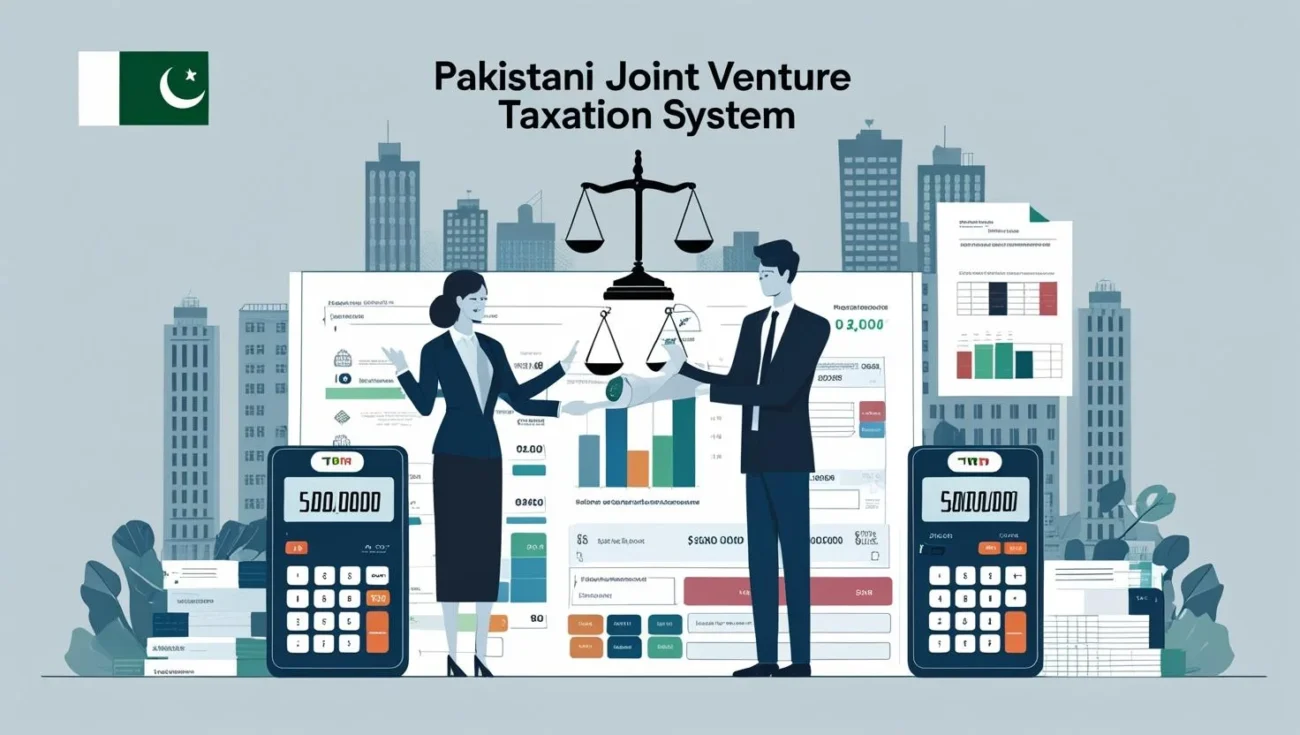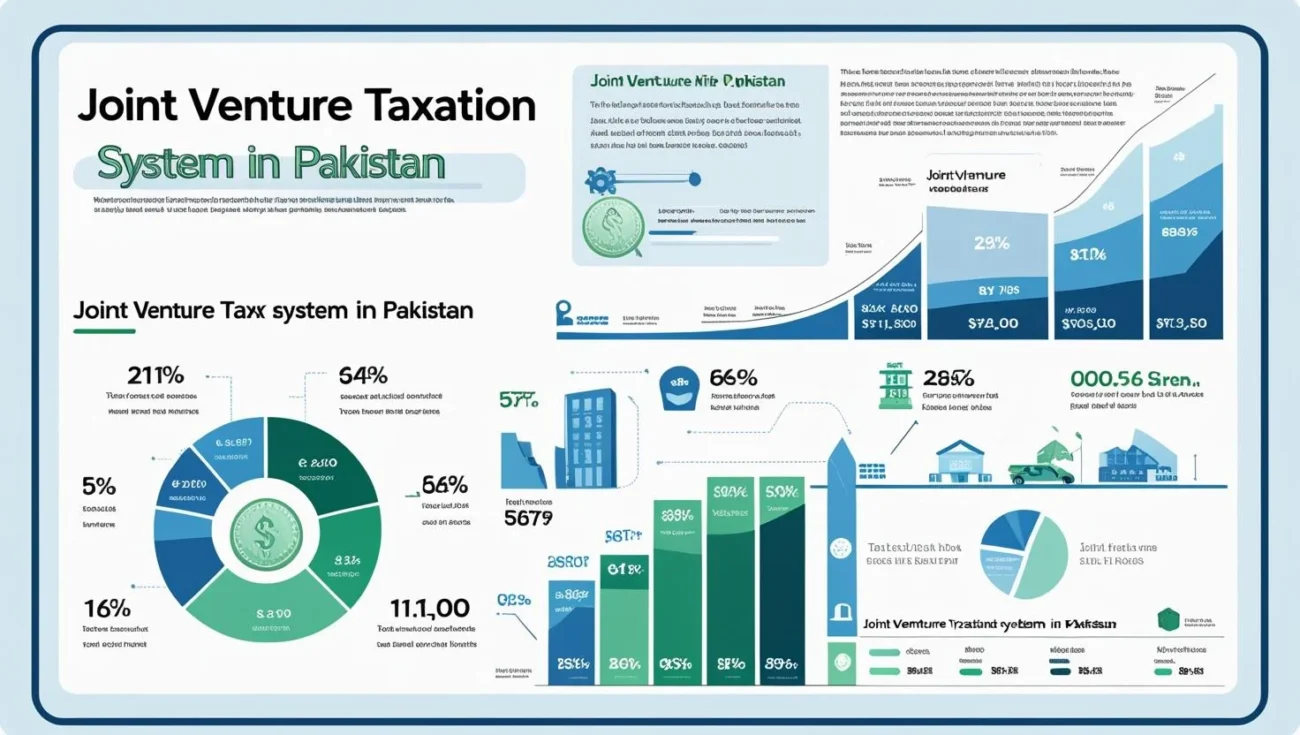Introduction
Strategic Importance in a Dynamic Business Landscape
The joint venture concept has taken modern dimensions in the vibrant business environment in Pakistan and it comes up as a strategic approach of businesses to undertake jointly beneficial ventures. Such a business model can be used whether it is in infrastructure development, energy exploration, agriculture, or even technology, since two or more units are able to combine their resources, expertise, and even capital in order to meet certain goals. It becomes a favored destination both of the local and foreign investors who want to expand in the Pakistani market.
Structural Nature of Joint Ventures
A combined venture act in Pakistan can be discussed as a situation when parties of the venture have their own, independent legal identities, united by a certain amount of work. Contrary to a merger or an outright acquisition, this system is usually developed with a defined time frame in mind or with a given project. The model helps the businesses avoid financial risk, distributes the responsibilities in the operations, and draws on domestic expertise. This is particularly of benefit to foreign companies who come to the Pakistani market and may find it challenging to meet the regulatory and cultural environment.
Tax Perspective on Joint Ventures
In addition, the government in some instances of the Pakistani legal framework can consider revenue earned out of a combined venture as a taxable body. This implies that despite the fact that a joint venture might not be registered as an individual company, its income might be taxed according to the Income Tax Ordinance, 2001. This treatment lies in the fact that any organization that makes any profit in Pakistan is obliged to go by the tax laws of Pakistan, This is why the partnership company might establish a joint venture that could be subject to taxation, regardless of whether it takes the form of an equity-based or contractual arrangement.
Legal Framework and Structure of Joint Venture in Pakistan
Types of Joint Ventures: Equity vs. Contractual
In the Pakistani business environment, there are two broad types, which is a joint business enterprise. In the first type, a new legal organization is formed (equity-based), whereas in the second form, a joint business is conducted using a contractual agreement without the creation of a separate company. The selection of these structures lies in the method in which the venture is undertaken with regard to its scope, length, and the complexity involved. In an equity-based joint venture, the parties form a new business and become shareholders, and on the other hand, in a contractual collaborative venture, parties are linked together via a joint venture agreement that is only binding to them.
Legal and Regulatory Requirements
In Pakistan, the legal framework governing joint ventures—regardless of their structure is primarily based on the Companies Act, 2017, the Contract Act, 1872, and relevant sector-specific regulations. The regulatory framework governing entities is defined by the Securities and Exchange Commission of Pakistan (SECP), the Federal Board of Revenue (FBR), and the Board of Investment (BOI). The business may have to go through further authorizations by other regulators in specific industries, like the National Electric Power Regulatory Authority (NEPRA) or the Oil and Gas Regulatory Authority (OGRA).

Tax Responsibility and Compliance
The other legal consideration is the way the taxation is handled. The legal formation of a joint venture directly impacts its tax classification, determining whether it is assessed under partnership rules or corporate taxation frameworks.The setup itself may be made liable to taxation even without the joint venture being registered as a formal entity. That puts a burden on the parties involved to maintain that there are no ambiguities in the joint venture agreement as to how the mechanism of sharing profits will be worked between the parties, and who is going to take care of implementing the tax requirements.
Significance of a Detailed Joint Venture Agreement
Legal Foundation and Operational Clarity
Any successful system must be built around a good-staged joint venture agreement. In Pakistan, it serves as the main legal document which stipulates the rights, obligations, sharing of profits, structure of authority, and such termination-agreed clauses between partners. Taking into account that the environment under which the joint venture is operating is very complex and even wild at times, It is essential that this agreement covers all potential scenarios, including options for dispute resolution and handling unforeseen circumstances.
Financial and Taxation Clauses
The joint venture agreement should also clearly outline the tax liabilities of each party involved. Given the various ways tax authorities may treat a joint venture either as a separate tax-paying entity or by taxing the individual participants it is crucial that the agreement clearly defines the applicable tax responsibilities to ensure compliance. Also, the provisions concerned with revenue recognition, expense allocations, and capital investment have a prominent role in the tax calculations that might have to be paid because of the system based operations.
Avoiding Legal Risks
Such legal disputes and penalties can be witnessed in the Pakistani sphere when the responsibilities are not formalized in the detailed joint venture agreement, especially when it comes to the taxation. It is also necessary that businesses comprehend the fact that such arrangements may come under the scrutiny of the Federal Board of Revenue in cases where all parties involved are not playing their part as far as the fiscal concerns are concerned.
Taxation Implications for Joint Venture in Pakistan
Taxable Status of Joint Ventures
One of the important legal considerations in Pakistan is how income from collaborative business arrangements is taxed. Even if such an arrangement is not established as a separate legal entity, it may still be treated as a taxable entity under the relevant laws. In practice, any income generated through joint operations within the country is subject to taxation, regardless of the specific legal structure involved.
Entity vs. Participant-Based Taxation
The logic behind this understanding is the fact that the Pakistani government taxes all income earned within the country. When a joint system is organized as an entity, it is an entity that is taxed under tax laws just like other corporations. But in case it is an agreement in nature, then the tax liability can be shared between the partners according to the terms agreed under the joint venture agreement. When this happens, the partners will be obligated to submit their tax returns containing their own share of revenues of the joint system.
Other Applicable Taxes and Regulatory Oversight
Additionally, various taxes may apply depending on the nature of the collaboration, including withholding tax, sales tax, and other indirect levies, which vary based on the industry and the type of services or products involved. Businesses operating under government contracts—especially in sectors like infrastructure and construction—are typically required to maintain detailed tax documentation to avoid penalties or disqualification from public tenders.
Businesses venturing into collaborative venture in Pakistan ought to discuss with tax experts and legal practitioners to ascertain all the implications of their cooperation in order to reduce risks. It is not a matter of formality; however, an essential aspect of legal and fiscal conformity to draft the joint venture agreement containing clear tax-related clauses.

Opportunities and Challenges of Joint Venture in Pakistan
Emerging Sectors and Investment Channels
The country Pakistan is a goldmine of opportunities for business ventures ready to cooperate by way of forming joint systems. This model has also spread in sectors like energy, telecommunication, the pharmaceutical, and agriculture industries. Government-sponsored projects such as the China-Pakistan Economic Corridor (CPEC) have also enabled a high number of collaborative ventures, especially in the area of infrastructure development where both foreign and domestic players come together.
Risks: Political, Fiscal, and Cultural
Occurring together with those chances, however, there is a lot of risk. Non-clarity in politics, variations in taxation policies, and irregularities in the implementation of regulations can have implications on the consistency of a joint taxation system and its profitability. Also, the presence of cultural peculiarities and contradictions between the partners in management can interfere with the performance unless it is regulated in the initial agreement on combined venture.
Due Diligence and Strategic Planning
This is why it is not an option, but rather a necessity, that both local and international corporations should conduct an exhaustive due diligence as far as getting into a joint venture in Pakistan is concerned. Full knowledge of the regulatory environment, a clear contractual agreement, and a goal-oriented strategy that is in alignment is vital in the success of the venture. Most importantly, any business should make sure that their financial conditions will not be in disagreement with the taxation law of a country to prevent possible audit and punishment.
Conclusion
In Pakistan, the model of combined taxation has introduced an approach that is non-rigid and strategic in nature, as it targets companies whose intention is to expand to new markets or to share risks associated with operations. It gives businesses the ability to pool capabilities, tap local resources, and get a better understanding of regulatory frameworks. It is necessary, however, to remember that also a combined venture may be considered as a form of taxation within the Pakistani legislation, and it should be followed strictly according to the regulations of income and corporate taxes.
A detailed and well-written joint venture agreement is a must in controlling expectations, legal and financial responsibility. Companies planning to venture into a joint venture in Pakistan do not merely need to take care of the alignment in operations but also the clarity of the laws of the land and taxation to achieve success in the long term in a competitive climate.


